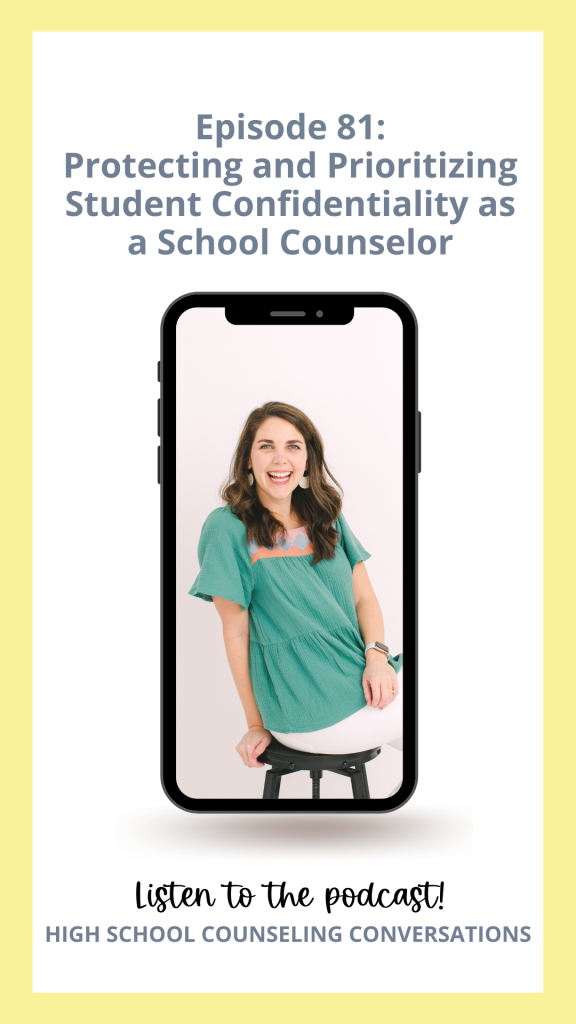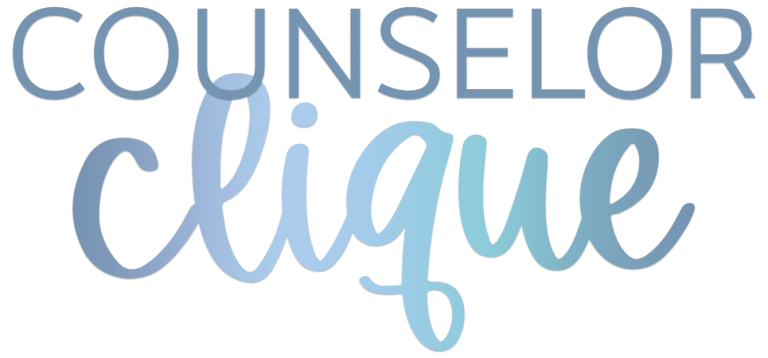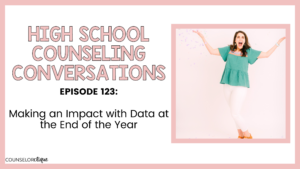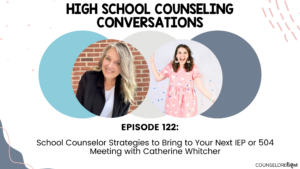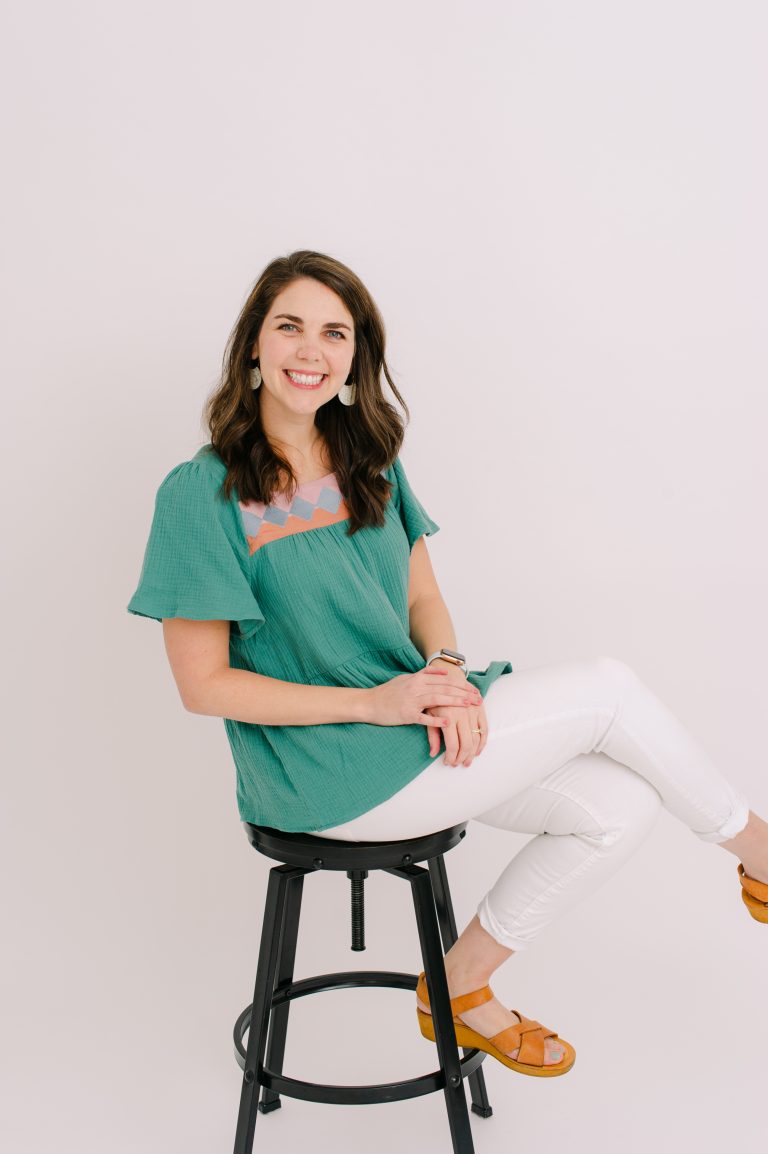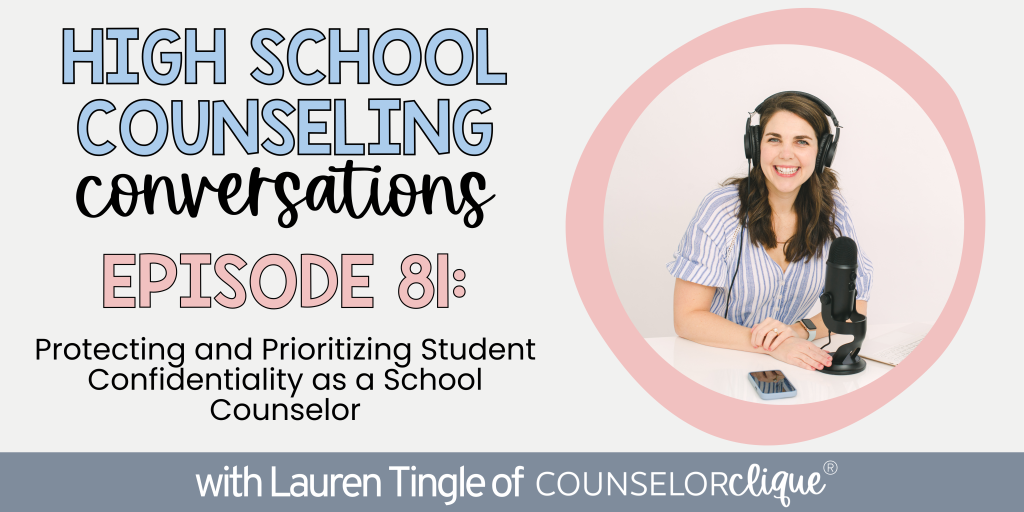
Here's What to Expect In This Episode:
One of our greatest responsibilities and privileges as school counselors is student confidentiality. I know how difficult it can be when others in the school don’t prioritize confidentiality, but we can’t let that affect our commitment to our students and their privacy.
We’re both advocates for our students and co-workers trying to build relationships with others in the school. It’s important to be on the same team as teachers and administrators and assure them that we’ll maintain student confidentiality. But how can we do that?
In today’s episode, I’m sharing how we can protect a student’s experiences, emotions, and thoughts by giving them autonomy, creating a safe space, and having a clear understanding of boundaries with both students and other staff. I’ll even give you examples of how you can share information with teachers without compromising confidentiality.
What has your experience been when it comes to student confidentiality? Send me a message on Instagram @counselorclique and share your thoughts with me!
Topics Covered in This Episode:
- Evaluating whether or not your office/physical space lends itself to confidentiality
- Giving students autonomy with what they do or don’t want to share with others
- Expressing your role and ethical standards as a counselor with admins and teachers using interactive presentations
- Sharing information with teachers and administrators without compromising confidentiality
- Keeping minimal, non-judgmental notes and preserving confidentiality through locked spaces
- Creating safe spaces for students to talk and share
Resources Mentioned in This Episode:
Other Blog Posts You Might Like:
- Podcast: Episode 63, Strategies to Employ When You Have Frequent Flyer Students
- Podcast: Episode 62, Achieve Small Group Student Buy-In With These 4 Ideas
- Podcast: Episode 47, 3 Ways to Help Your Failing Students Find Success
- Blog: 3 Ways to Make a More Profound Impact on Students by Changing Your Mindset
Read the transcript for this episode:
0:00
Before we dive into this week’s episode of High School Counseling Conversations, can I ask a quick favor of you? One of the best ways that you can show your support for this free podcast is to head over to Apple Podcasts and leave a raving review. Click on the show and scroll down. You’ll see a place to give the show a five star rating, but let’s take it a step further. Make your mark. Let me know what you love about the show. Tell me what episode made an impact on you. Tell me how you’re incorporating podcast ideas into your high school counseling program.
0:32
The K1515 left a review called “The Best”. She said, “Love listening to Lauren speak on helpful resources and information for school counselors. As a new school counselor, her podcast and content have been so helpful.”
0:46
I’d love to read your review next on the podcast. So what are you waiting for? Hit pause and go over and show your support by leaving a review right now.
0:54
Now let’s get into today’s topic. How do you manage student confidentiality when it’s a pillar of your ethics as a school counselor, but others in the school don’t come from that background or training? It’s hard from gossip in the mailroom to mentions of how a student is failing their class, you usually have some sort of insight on a situation but can’t always entirely speak into it right in that context. You’re an advocate for your students, but you’re a co worker and a peer to those who you’re trying to develop relationships with in order to do your job well. It’s a really weird place to be. Let’s talk more about it in this week’s episode.
1:38
You got into this profession to make a difference in your students lives, but you’re spread thin by all the things that keep getting added to your to do list. I can’t create more hours in the day, but I can’t invite you into my Counselor Clique, where you’ll finally catch your breath. Come with me as we unpack creative ideas and effective strategies that will help you be the counselor who leaves a lifelong impact on your students. I’m Lauren Tingle your high school counseling hype girl, here to help you energize your school counseling program and remind you have how much you love your job.
2:11
When you start working with students, it’s important that they understand that you’re a safe place to talk, share, visit. I like to have some sort of flyer or poster in my office that reminds them of the times when you’re going to have to break confidentiality with them and share some of that with someone else. I’ve never had a problem explaining this to a student once they realize it’s for everyone’s benefit to get help from someone more equipped to do that. I’ll attach a free resource in the show notes of a simple handout to print and hang in your office.
2:39
It’s even a good visual for me to see it when I sense that our conversation might be heading somewhere where I need to point it out again and remind a student that I’ll have to share this information with someone else if we get to that point. This ensures everyone that we’re on the same page about protecting the students confidentiality within a certain bound.
2:57
When I’m thinking about the space that students are coming to to share, I think it’s important that we evaluate our office and the physical space that students are sharing their thoughts in. Our physical space as high school counselors is important to facilitate a safe emotional space for our students. If you’re in a space where there’s no privacy or confidentiality due to the nature of that location, I think it’s important that you start advocating for a more appropriate space in your school. Even if that real estate is seemingly sparse.
3:26
You cannot be expected to be a place of safety and security to your students if your office is a cut through to the cafeteria for administrators or your office is shared with someone else with just a divider between the two of you. Evaluating your physical space to ensure that you’re working at an area that no doubt conserves your students confidentiality is really important.
3:47
You nailed your interview, secured your dream job, what the heck do you do next? How do you know where to go from here? Imagine reducing your overwhelm with a guide that takes you through the step by step process of what needs to happen after you get the job. You don’t deserve to waste your energy spinning your wheels every different direction. You’ve got other things to get to. Get the support you need to start your new role with confidence and clarity.
4:15
Introducing the High School Counselor Kickstart Course. This eight episode private podcast will help you navigate the early years of your high school counseling career with confidence. In addition to the exclusive podcast episodes, you’ll get episode transcripts, a workbook, a PD certificate, and two incredible bonuses that you don’t want to miss, a high school counseling curriculum map and a sample needs assessment. Consider this your comprehensive survival kit for your beginning years as a high school counselor. Join us inside the High School Counselor Kickstart Course by going to counselorclique.com/newcounselor today.
4:48
Teachers and admin want to know that you’re on the same team. Reassure them that you will be as open as possible with them without crossing a student’s lines of confidentiality. One of the best parts of working in a high school is the independence you get to help your students develop. So a lot of times I would direct it back to the student and give them some autonomy in the way that they wanted their information shared with other adults in the building, if they wanted that to be shared.
5:14
I would tell them tell me or you can tell other adults what you want to share who you want to share it with. This way, I was kind of the facilitator of the information and I was very clear on what the student wanted anybody else to know. I would also give the student the opportunity to share with teachers or ask them if they wanted me to share something with the teachers.
5:35
I’d tell them exactly what I would be sharing just to make sure we were on the exact same page. Use every opportunity in school, especially at the beginning of the year and the beginning of the semester, to lay out your role as clearly as possible from the earliest point. To do this, you could make sure that you get some upfront FaceTime with admin before teachers ever even get into the building. And then do the same thing with teachers at a back to school meeting.
5:58
You can use a presentation but also make it interactive, especially if we’re focusing on this topic of confidentiality, there gonna be a lot of questions. And we can make it interactive with some case studies here. Make sure you touch on your ethical standards as a counselor, because that’s going to be different in terms of the confidentiality that teachers might need to or not need to keep. Make up examples of something that a student may be going through and how it might be delivered to the teacher when it can’t be straight up shared.
6:25
I can think of so many examples from my past counseling experiences that come to mind with this and how I was able to give little bits of information to the teacher has to at least let them know something was going on. And then if they understand your role, and how you are trying to protect that, hopefully, they will be respectful and not push those boundaries with you any farther.
6:45
For example, maybe there’s a terminal illness going on in the family, maybe a student is going through homelessness, maybe there’s just an ongoing police investigation that the teacher was just not privy to the information. Usually, if you can just confirm with the teacher and talk face to face and tell them, hey, something heavy is going on with this particular student and I’m going to keep you informed as much as I can and as much as the student wants, then hopefully, they will respect that and you will be on the same page moving forward.
7:13
If a student is going to be missing their class for a certain reason, over say the next few upcoming weeks, I think it’s helpful for them to know some information and to be able to make a game plan for it. But they don’t need to specifically know that they’re going to miss in class for DSS interviews or meetings with social workers, or whatever that reason is. Just allowing them the space to kind of even process with you another adult and say, Hey, this student is going to be missing class and I’ll fill you in when I can. It’s just a really sensitive issue right now.
7:44
Setting these expectations up early and often with teachers and administrators will alleviate some awkwardness later. Now I’ve heard about the principal who wants to see all the notes on all the students. First of all, who has time for this? I feel like principals have a lot of other things on their plate. What is the point of this? I’m not sure. Surely there’s an underlying reason why they would want this and maybe you can get to the bottom of that and provide them with other information that they might be actually looking for.
8:10
Second of all, I do an entire lesson on note taking inside of my audio course for new high school counselors called the High School Counselor Kickstart since there are always a lot of questions on how and when to take notes on students. But this is worth mentioning.
8:23
Where do you keep your notes on students? How are we physically preserving student confidentiality with our notes? Keep minimal notes that serve as memory triggers. If you have to keep papers that are confidential, keep them in a locked space in your office. Any notes that you do have can be subpoenaed for court. So be sure to keep them very general and without judgment.
8:44
Of course, there are lots of other questions and examples that people have about preserving confidentiality around safety sake and legalities like drugs, alcohol, pregnancy, student safety. I think that can be an episode on its own too. You’ll see a lot of these scenarios asked in big Facebook groups or in the ethics columns in the ASCA magazine.
9:03
You are the one who gets to preserve the student’s confidentiality. If a student is not used to being in settings where that is honored then wow, what a privilege that you get to bring to the table. You get to protect their experiences, emotions, and thoughts that they’ve shared with you. It’s a weighty responsibility but you are equipped for it. This is an ever evolving conversation because there are 1,000,001 instances of confidentiality and the reasons why we do or don’t preserve it for our students. It can be a really gray area.
9:34
I’d love to hear more about your good and bad experiences with this. Send me a DM after you’ve listened to this episode and let me know your thoughts.
9:43
Thanks for listening to today’s episode of High School Counseling Conversations. All the links I talked about today can be found in the show notes and also at counselorcliqe.com/podcast. Be sure to hit follow wherever you listen to your podcast so that you never miss a new episode. Connect with me over on Instagram. Feel free to send me a DM @counselorclique. That’s CLIQUE. I’ll see you next week.
Connect with Lauren:
Cheers + Happy Listening!
Like what you’re hearing? Follow and leave a review on Apple Podcasts. It helps other high school counseling friends find it!
Can’t contain your excitement? Share the pod! Tell a friend! Your word-of-mouth referrals mean the world to me!
